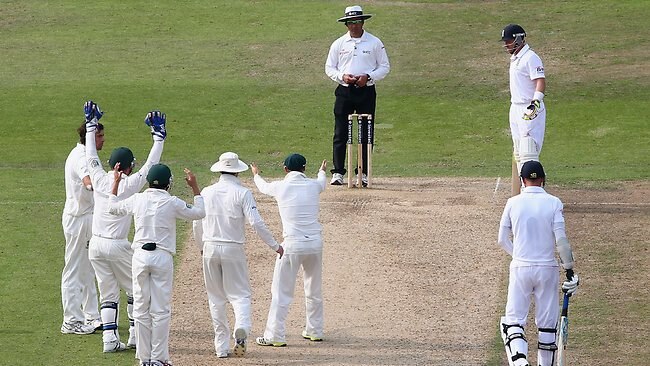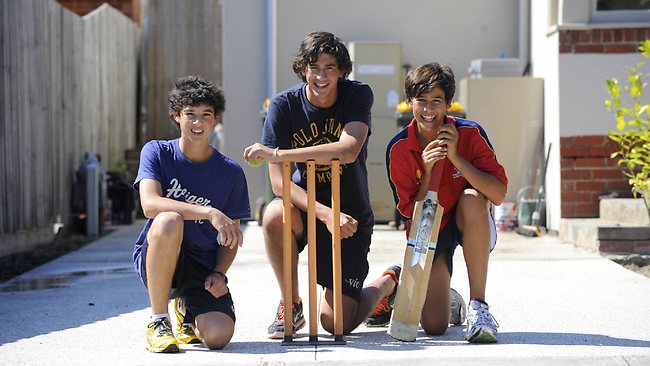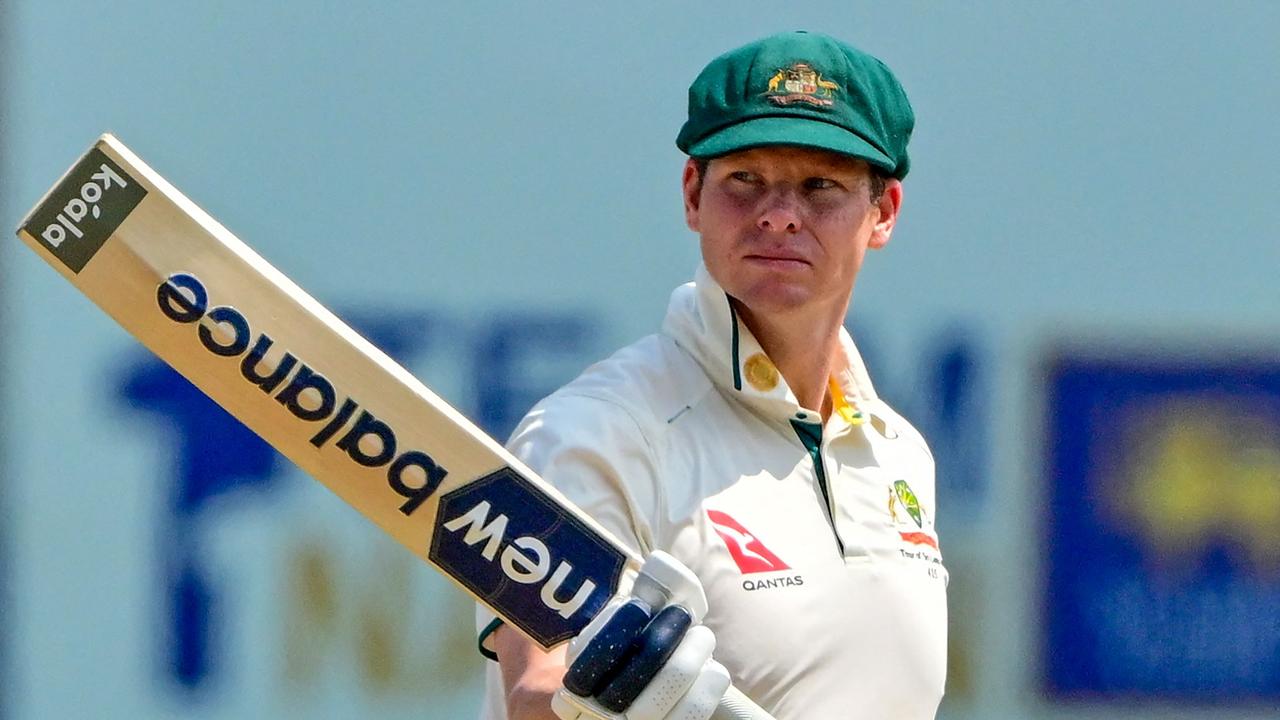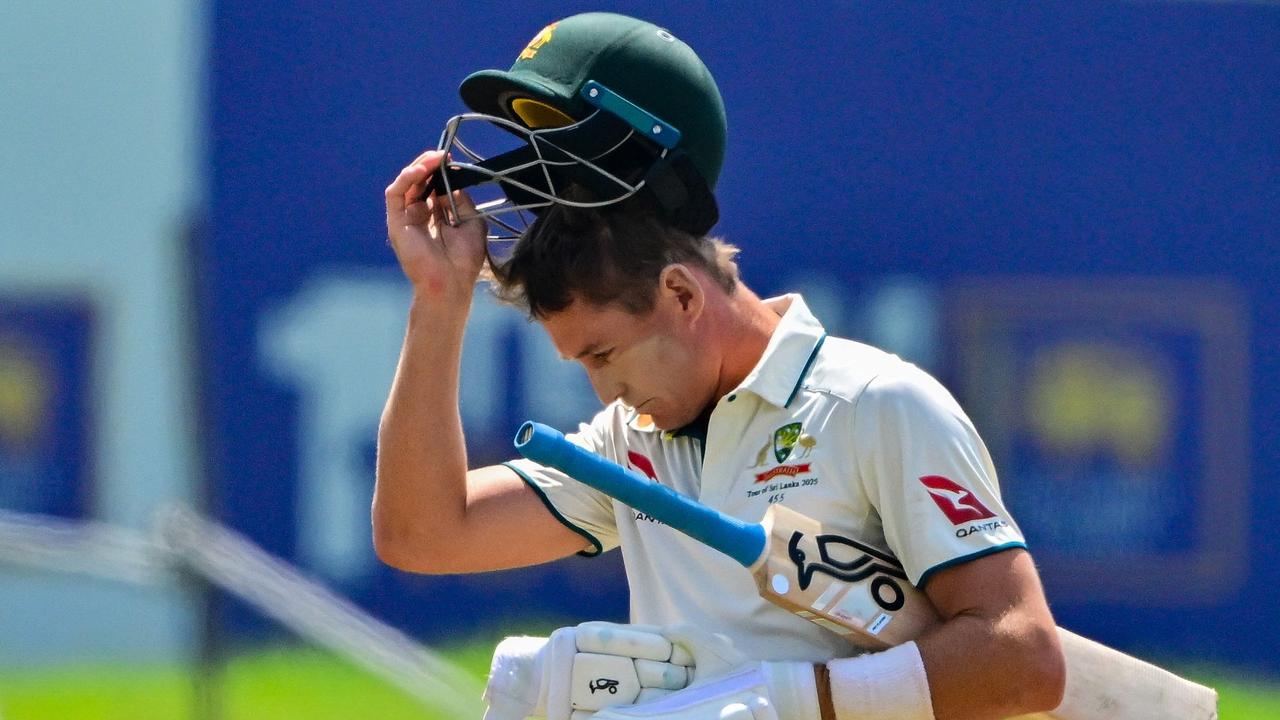England in control of Trent Bridge Test after bad umpiring decision
A DIABOLICALLY bad decision by umpire Aleem Dar cost Australia the critical wicket of Stuart Broad as England ground its way into control of the Test.
A DIABOLICALLY bad decision by umpire Aleem Dar cost Australia – and teenage spinner Ashton Agar - the critical wicket of tailender Stuart Broad as England ground its way into control of the Trent Bridge Test today.
After the absurdity of the first day’s harem-scarem batting and the incredulity surrounding Agar’s astonishing 98 on day two, the opening match of the 2013 Ashes series finally settled down into gritty Test match mode today as England fought its way into a potentially match-winning ascendancy at the end of day three.
England reached stumps at 6-326, 261 runs ahead – every one of which is going to be exceedingly difficult for Australia to hunt down when it finally begins its second innings on a cracked and deteriorating wicket.
Ian Bell was the cornerstone of the England revival, coming to the wicket with his side effectively 3-56 and then battling bravely for more than five hours for an unconquered 95.
But while the Australians had nothing but praise for him, they were directing entirely different sentiments at his batting partner after Broad brazenly refused to walk after clearly batting a catch straight to Michael Clarke at first slip off Agar when he was 37 and England 6-297.
Granted, the catch did deflect off keeper Brad Haddin’s gloves but so blatantly obvious was the dismissal that even the graphics technicians at Sky Sport changed the score to 7-297 but to the astonishment of everyone at the ground, umpire Aleem Dar simply did not react and Broad was still there at stumps on 47.
The incident stirred memories of the famous controversy on the 1987 England tour of Pakistan when Broad’s father, Chris, refused to leave even after being given out by local umpire Shakeed Khan in the First Test in Lahore.
Eventually his batting partner Graham Gooch had to wander down the pitch and gently advise him to leave.
Still, the last thing Australia needs now is a "walking" controversy. It is almost an established law of Australian cricket that no one walks and while the cricketing public is free to make its own judgement of Broad and whether he played in the spirit of the game, this is not a debate the Australian players should, or indeed did join – not without inviting accusations of double standards.
Whatever their real feelings, the Australians officially made light of the incident.
"It happens," said pace spearhead Peter Siddle. "It is the umpire’s decisions and you just take it and that’s what we did. We just have to work harder tomorrow morning.
"Obviously people are going to be frustrated but it’s hard out there for players, for umpires. It’s a long day, it’s a tough day for people out there. Things are going to happen and we just have to deal with it. That’s just a part of the game and spectators have to understand that – that there are times when things like that happen. Obviously it’s a long day and it’s hard for everyone involved. We can’t be blaming anyone."
The England camp evidently took the view that attack is the best form of defence and sent the monumentally self-assured Kevin Pietersen in to blunt the media attack.
"Each and every player who plays for their country, plays for their club side, plays for their county, plays for their province, plays for their franchise has the opportunity to wait for the decision the umpire makes and to respect the umpire’s decision," Pietersen said.
"We play hard, we play fair. Each individual has the responsibility... or makes his own judgement in the middle and says I’ll wait for the umpire’s decision. Aleem Dar is a fantastic umpire and he’s been rated one of the best umpires in world cricket over the last few years."
Happily, there were some England players, albeit distinguished former players, who were prepared to be more forthright.
"An incredible decision – or rather non-decision," lamented former England captain turned television commentator David Gower.
Another former England skipper, Michael Vaughan, warned that the controversy would completely overshadow what was another engrossing day of Ashes cricket.
"The review system was brought in to get rid of the howler," said Vaughan. "I don't see why umpire Dar couldn't have had someone is his ear saying you've got that one wrong let's just overturn that quickly. This has been a terrific game but I think a lot will be talked about that incident, which is sad."
Even Shane Warne weighed in to the controversy, tweeting "He (Dar) always gets the crucial decisions wrong & always has, that's why he's not a great umpire!.
"We all make mistakes & it's a very tough job being an umpire, but when Dar continually makes crucial mistakes why does he keep getting a gig?"
Dar made no attempt to disguise his disgust when the third umpire, Marais Erasmus, overturned his on-field decision to give Jonathan Trott out lbw the previous evening but even the slowest of slo-mo replays of that contentious dismissal failed to conclusively establish whether the batsman had edged the ball onto his pads. There is no question Trott should have been given the benefit of the doubt but there is also the very strong possibility that he was truly out.
No such doubt exists in this instance. Broad should have been gone and England’s last three batsmen, Graeme Swann, Steven Finn and James Anderson – who collectively contributed only two runs in the first innings – should have been exposed.
The Australians were still asking themselves, and no doubt the man himself, why Broad had not walked when, just two balls later, Bell, on 77, edged a catch to Haddin off Siddle. And to add insult to the aggrieved wound, not only was the catch not taken but the ball scuttled away for four valuable runs.
Still, perhaps the Australians might more pertinently have been asking themselves why they earlier had squandered a referral on an lbw appeal against Jonny Bairstow when reviews showed the ball missing leg stump by around 10cm.
The tension spilled over into the late afternoon with paceman James Pattinson earning what appeared to be a dressing down from umpire Kumar Dharmasena for carrying on too long and aggressively in appealing for an lbw decision against Bell when he was on 94.
But of all the decisions taken in this gripping day’s play, perhaps the most critical in the overall context of this Test was Clarke’s call to go to a second new ball after 83 overs.
Agar was in the midst of a 24-ball spell that had earned him 2-8 while all the bowlers, but especially Pattinson were reversing the old ball dramatically.
Out to the wicket strode the England keeper Matt Prior, a batsman who loves the ball coming on to him. Logic dictated that the Australians persevere with the old ball, especially as it was behaving so helpfully for them, but then they clearly had done their homework on Prior and decided the best approach was to attack his strength.
So Clarke stationed one fieldsman just in front of point, another just behind and yet another 20m deeper and then had his bowlers feed Prior’s insatiable appetite for the short ball.
After a near-miss when Prior on 21 cracked a square cut from Siddle just over one of the shortest players in the Australian side, Ed Cowan at deep point, the tactic ultimately worked, although perhaps not quite in the way the Australians had envisaged.
He was indeed out caught, going hard at a short ball, but at midwicket – the ball this time coming at a more comfortable height for Cowan – off a delivery Siddle had banged into the pitch. But by that stage, however, Prior had scored 31 of the 42 runs scored in the 10 overs since the new ball had been taken.
That might not sound an inordinate price to pay but on a wicket becoming ever more unreliable, every run is going to prove highly valuable in the end and England could have asked for no more from Prior’s characteristically bold counter-offensive.
By the end of the day’s play, England had advanced a further 150 runs from when the new ball was taken for the loss of only Prior’s wicket.
Still, that’s hindsight talking, as Siddle was quick to point out.
"By the time it gets around to the 80-over mark, it's not really a cricket ball any more, it's more like a tennis ball. So yes it's reversing but sometimes it's not the easiest to bowl with. So you've got to toss up which way to go. But we thought with the new one a bit harder, a bit quicker we could have got a couple more wickets. Sadly we didn't."





